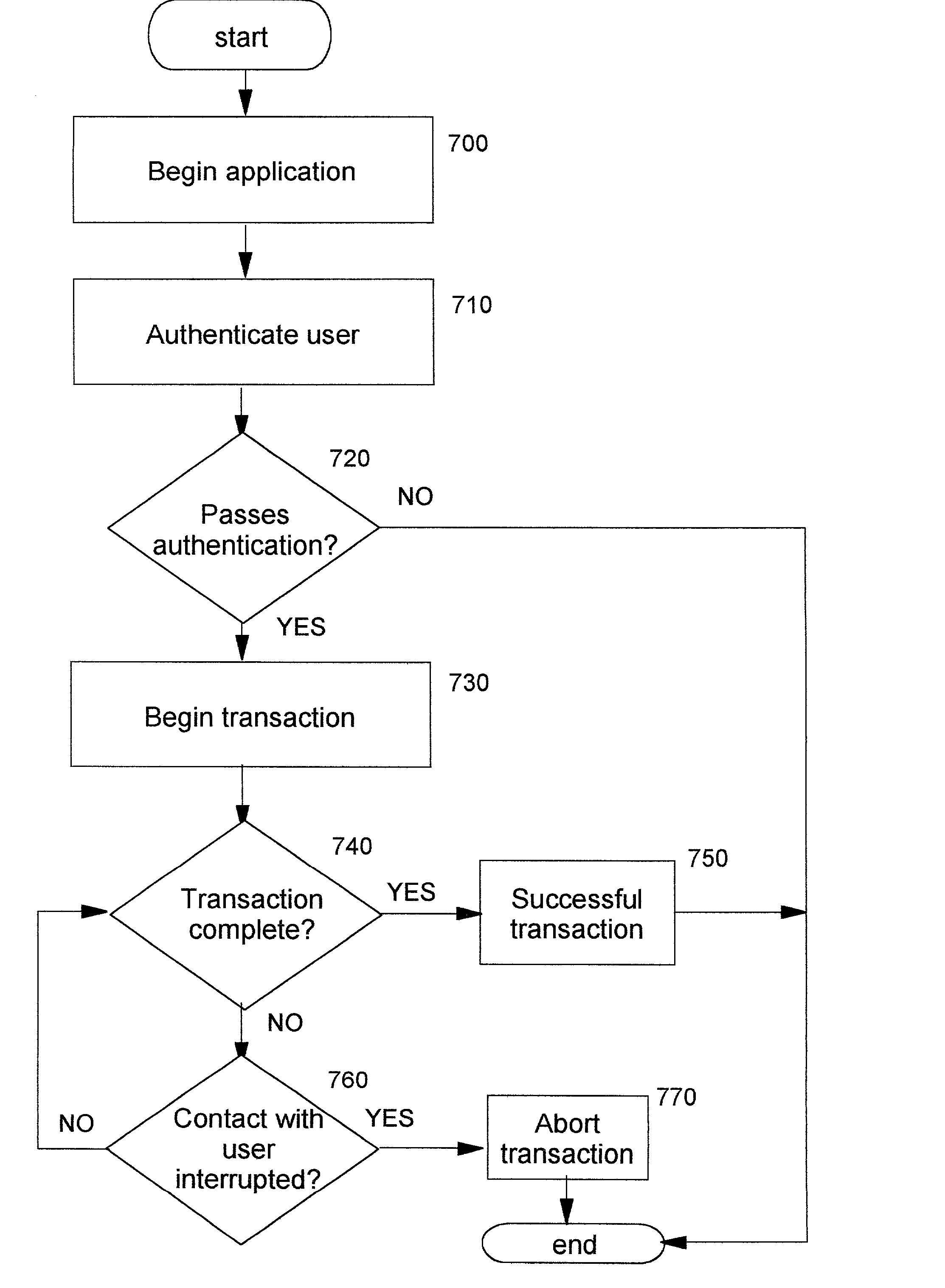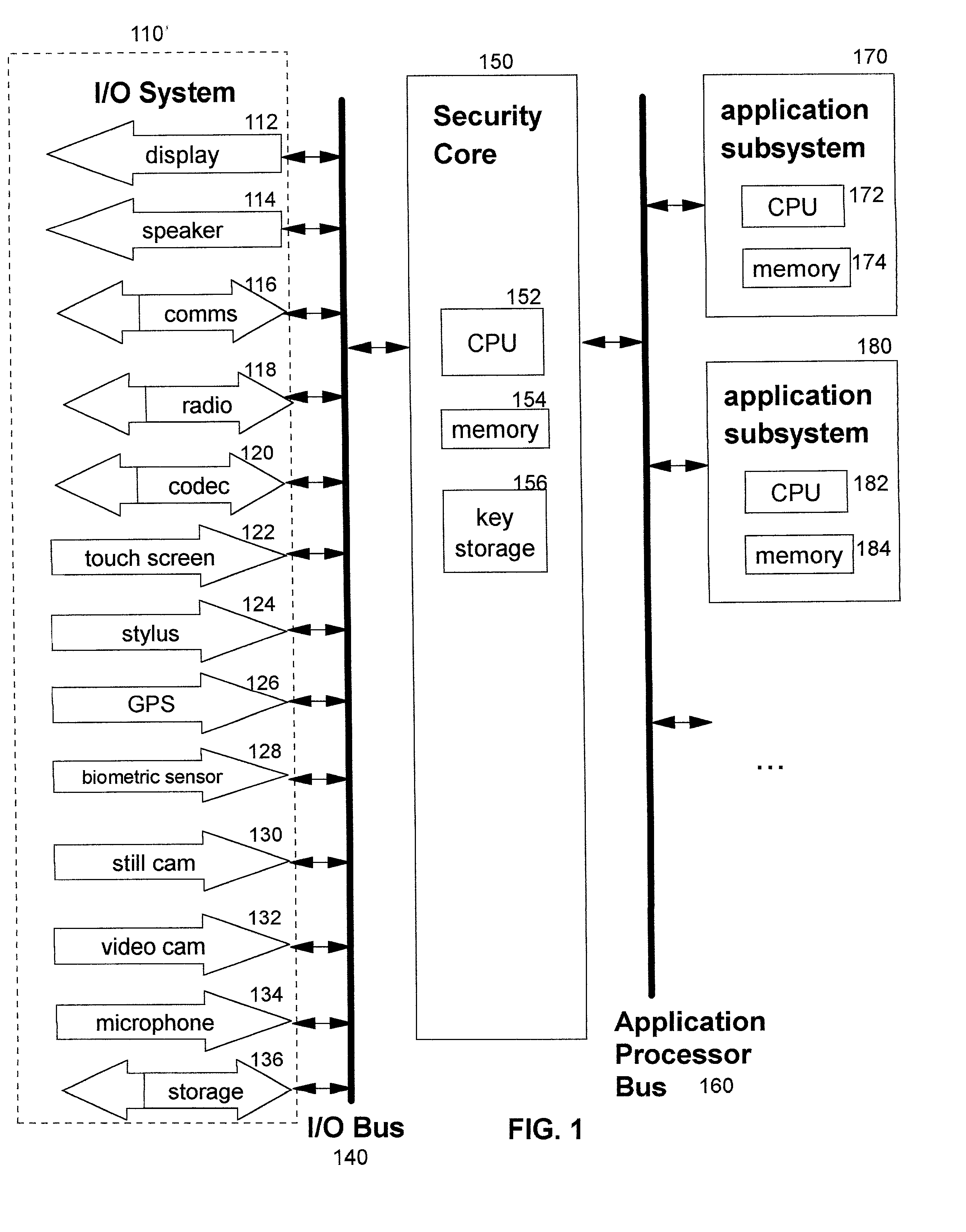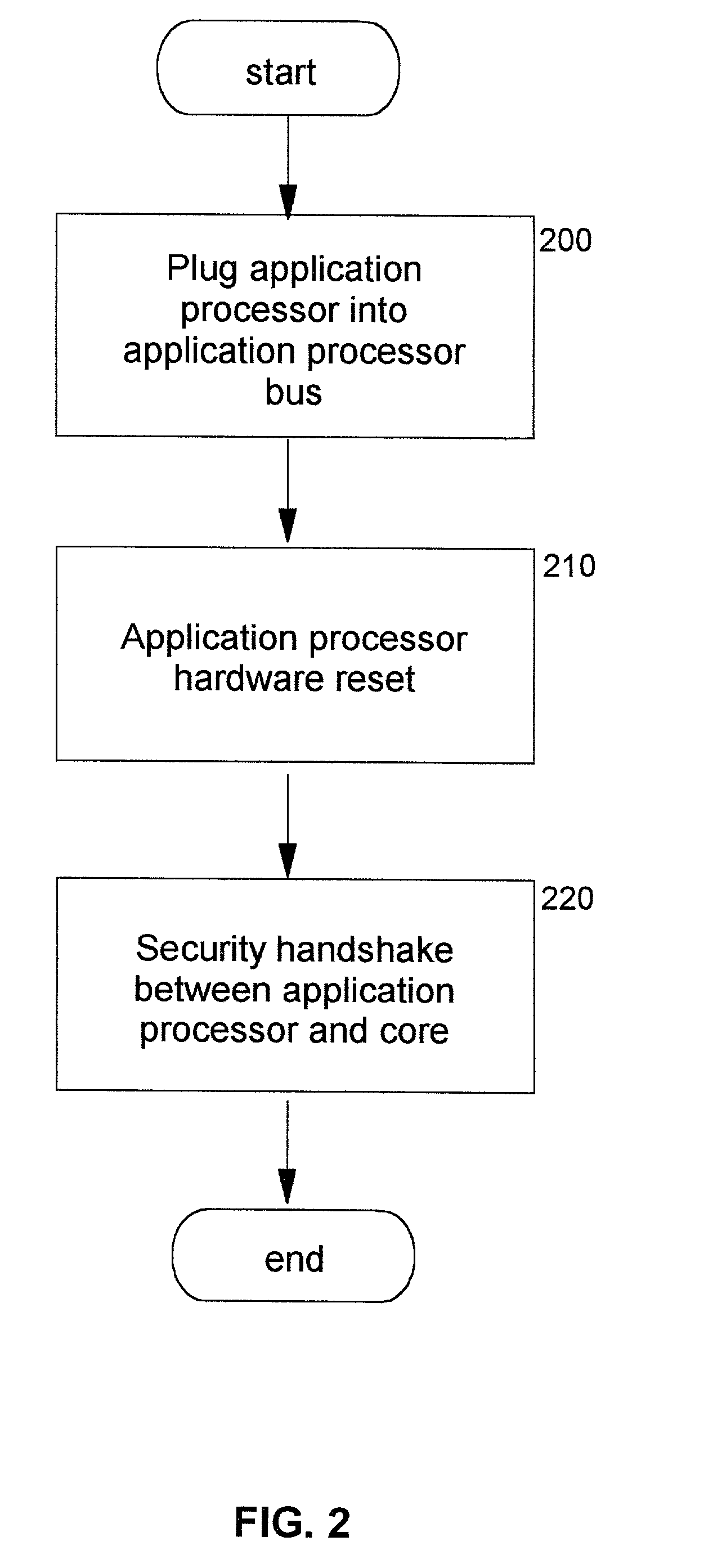Technique for continuous user authentication
a technology of user authentication and authentication method, applied in the field of computer systems, can solve the problems of large volume of devices, small size of all-in-one devices, and limited storage, and achieve the effect of avoiding unwanted products, avoiding unnecessary expenditure, and avoiding unnecessary expenditur
- Summary
- Abstract
- Description
- Claims
- Application Information
AI Technical Summary
Problems solved by technology
Method used
Image
Examples
Embodiment Construction
/ O components include a display means 112, audio speaker 114, communication means 116 (such as a modem), radio 118, code / decode module ("codec") 120, touch screen 122, stylus 124, GPS component 126, biometric sensor 128, still camera 130, video camera 132, microphone 134, and persistent storage 136.
[0052] In the preferred embodiments, a consumer purchases the security core, which provides general security functionality (as will be described in more detail), and then selects application processing components and I / O components according to the user's particular computing or processing interests. (References herein to "computing" devices are intended to include devices which are capable of performing processing or computations, and / or communications functions, without regard to how a particular user of such a device actually uses it.) Each application subsystem contains stored instructions in its memory 174, 184 wherein these instructions operate to provide the subsystem's particular ...
PUM
 Login to View More
Login to View More Abstract
Description
Claims
Application Information
 Login to View More
Login to View More - R&D
- Intellectual Property
- Life Sciences
- Materials
- Tech Scout
- Unparalleled Data Quality
- Higher Quality Content
- 60% Fewer Hallucinations
Browse by: Latest US Patents, China's latest patents, Technical Efficacy Thesaurus, Application Domain, Technology Topic, Popular Technical Reports.
© 2025 PatSnap. All rights reserved.Legal|Privacy policy|Modern Slavery Act Transparency Statement|Sitemap|About US| Contact US: help@patsnap.com



